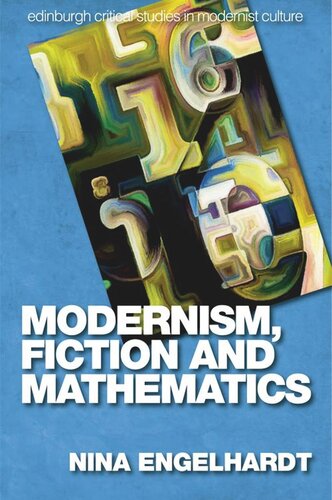

Most ebook files are in PDF format, so you can easily read them using various software such as Foxit Reader or directly on the Google Chrome browser.
Some ebook files are released by publishers in other formats such as .awz, .mobi, .epub, .fb2, etc. You may need to install specific software to read these formats on mobile/PC, such as Calibre.
Please read the tutorial at this link: https://ebookbell.com/faq
We offer FREE conversion to the popular formats you request; however, this may take some time. Therefore, right after payment, please email us, and we will try to provide the service as quickly as possible.
For some exceptional file formats or broken links (if any), please refrain from opening any disputes. Instead, email us first, and we will try to assist within a maximum of 6 hours.
EbookBell Team

4.3
48 reviewsModernism in mathematics – this unusual notion turns out to provide a new perspective on central questions in and beyond literary modernism. Contrasting ‘mathematical fictions’ from and about the heyday of mathematical modernism, this book relates literary engagements with mathematical modernism to the wider context of modernist critiques of Enlightenment values and postmodern reassessments of modernist patterns. The analysis of canonical works by Thomas Pynchon, Hermann Broch, and Robert Musil demonstrates how mathematics is accorded a central role as a particularly telling indicator of modernist transformations, and how imaginative illustrations contribute to establishing mathematics as part of modernist culture. In its interdisciplinary exploration of modernist interrelations between the surprisingly closely related fields of mathematics and literature, the book draws on prose works by mathematicians, research in the history and philosophy of mathematics, and literary scholarship.